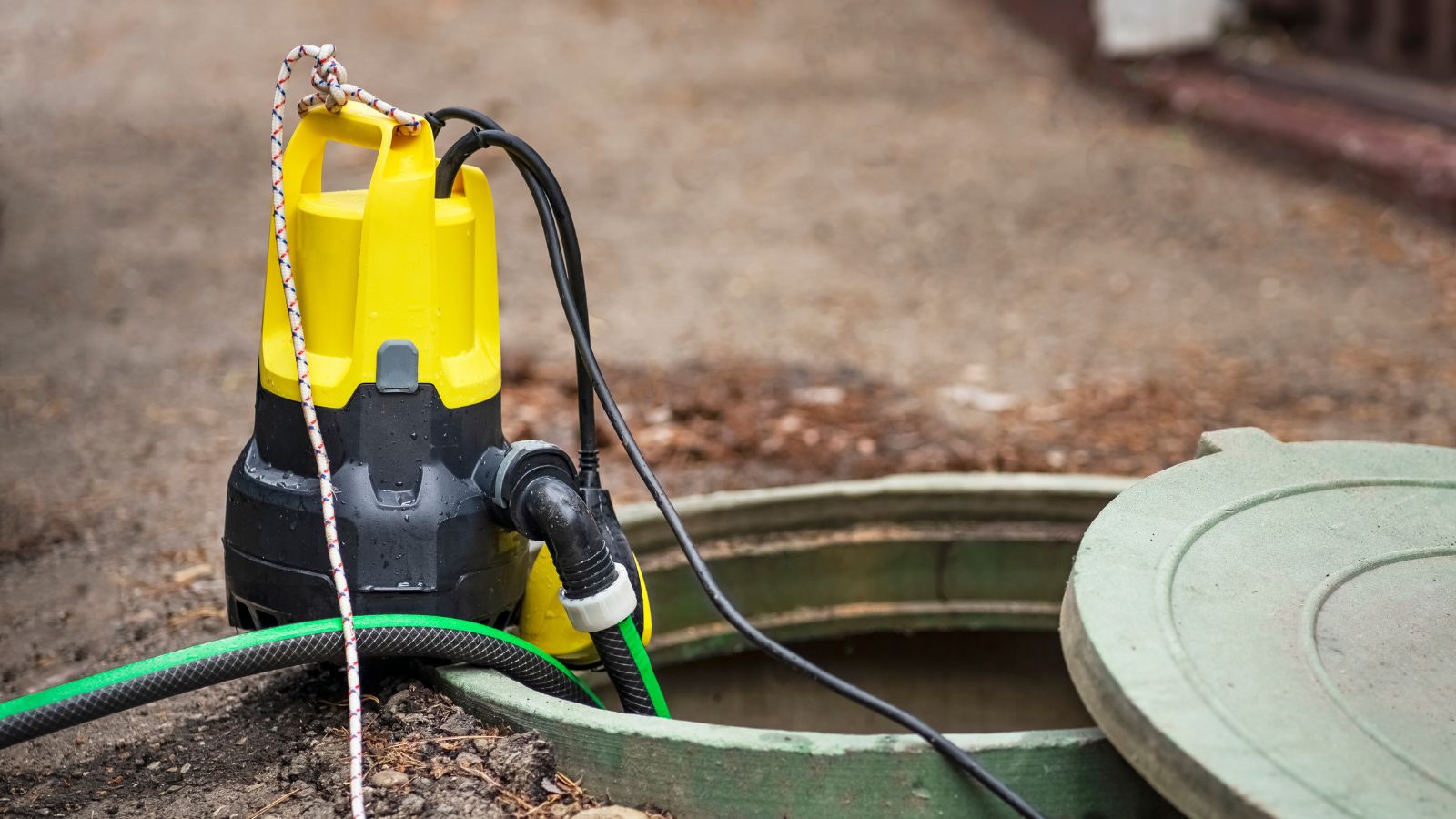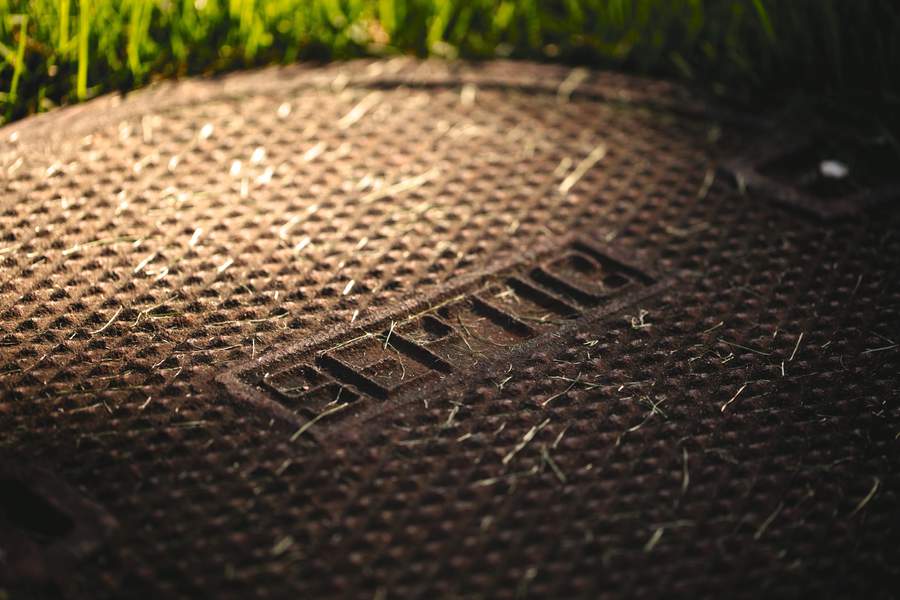How often should you pump your septic tank? Experts have the answers to avoid costly repairs
If pumping a septic tank is not managed timely, it can lead to sewage backup, odors, and clogs


Design expertise in your inbox – from inspiring decorating ideas and beautiful celebrity homes to practical gardening advice and shopping round-ups.
You are now subscribed
Your newsletter sign-up was successful
Want to add more newsletters?

Twice a week
Homes&Gardens
The ultimate interior design resource from the world's leading experts - discover inspiring decorating ideas, color scheming know-how, garden inspiration and shopping expertise.

Once a week
In The Loop from Next In Design
Members of the Next in Design Circle will receive In the Loop, our weekly email filled with trade news, names to know and spotlight moments. Together we’re building a brighter design future.

Twice a week
Cucina
Whether you’re passionate about hosting exquisite dinners, experimenting with culinary trends, or perfecting your kitchen's design with timeless elegance and innovative functionality, this newsletter is here to inspire
Your septic tanks play a vital role in managing household wastewater, yet, as is the case with anything that is kept out of sight, maintaining this system can easily be forgotten. However, pumping your septic tank is a crucial task that must be done routinely to keep it functioning properly and your home running smoothly.
But how often should you pump your septic tank? This question is key to responsible septic system maintenance. Typically, septic tanks require pumping when the solids occupy about one-third of the tank's capacity. Neglecting this task can lead to a host of undesirable issues and potentially expensive repairs. Similar to understanding how often you should drain your water heater, the frequency you should pump your septic tank will depend on an array of factors specific to your system and household.
We consulted with experts who shed light on the factors influencing pumping intervals, the consequences of overlooking septic tank maintenance, and strategies for establishing the optimal pumping schedule.
How often should you pump your septic tank?
'A good rule of thumb is to pump your septic tank every three to five years. However, the exact frequency can vary based on several factors, including the size of your tank, the number of people in your household, and your daily water usage,' explains Josh Mitchell, plumbing expert and owner of Plumbing Lab.
A larger household or one with heavy water usage may require more frequent pumping to prevent overloading the system. The more people using showers, garbage disposals, and laundry machines, the more frequent pumping. For example, homes with garbage disposals might need more frequent pumping due to increased solids entering the system.
So, if you have a large household, the septic tank will need to be pumped closer to every three years, whereas fewer people in the house means it needs to be pumped less frequently.

Josh Mitchell is, a plumbing expert and HVAC technician and the owner of Air Conditioner Lab and Plumbing Lab.
Why you need to pump a septic tank
Septic tanks need to be pumped every three to five years to work correctly and prevent issues from arising. Even with this frequency, some minor maintenance might be necessary.
Design expertise in your inbox – from inspiring decorating ideas and beautiful celebrity homes to practical gardening advice and shopping round-ups.
'Regular pumping is essential to preventing backups, odors, pooling water, and sluggish drains while also preserving the system's integrity,' says Ornella Bianco, a home improvement specialist at Fixr. Neglecting this upkeep can lead to clogs, drain field saturation, and groundwater contamination, posing serious health and environmental risks.'
For properties with both septic tanks and pools, careful maintenance is essential to prevent potential water leakage and cross-contamination between the two. Additionally, regularly pumping your septic tank is not just a preventive measure but also a cost-saving one. Adhering to the recommended pumping schedule may result in lower costs over time compared to infrequent or delayed pumping. For instance, Josh Mitchell explains: 'It's important to prevent solids from escaping into the drain field, which can lead to system failure, a costly and disruptive situation.
While it may seem like an expense, investing in regular pump-outs is a small price to pay compared to the potential costs of repairing or replacing a failed septic system.
Signs you need to pump your septic tank
It's essential to recognize when your septic tank needs attention. Asif Bux, plumbing expert and owner of Comfort Union, recommends looking out for these indicators:
'Sewage smells: If you notice foul odors inside your home or near the septic tank area, it's a sign that your tank may be full.
'Soggy ground: Saturated soil or pools of sewage water around the tank suggest it's time to pump.
'Slow draining: Issues with water drainage in toilets, sinks, and other fixtures can indicate a full or clogged tank.
'Scum levels: If the scum is close to the outlet pipe in your tank, it's a clear sign that pumping is necessary.
'Lush vegetation: Overly green or fast-growing grass around the tank area often means sewage leakage from a full tank.'
By monitoring these factors and promptly recognizing signs that your tank needs servicing, you can effectively manage the maintenance and expenses of septic tank pumping.
FAQs

How much does it cost to pump a septic tank?
'On average, homeowners can expect to pay between $295 and $610, with most spending around $400,' says Josh Mitchell.
However, costs vary by the size of your tank and region due to factors like the local economy, competition, accessibility, and transportation expenses (such as distance to the disposal site).
'It’s important to get quotes from several local services to ensure you receive a fair price. Additional services, like a baffle replacement or extensive cleaning, can increase the cost.'
Asif Bux breaks down how costs can differ:
Cost Per Gallon:
'Pumping costs approximately $0.23 to $0.40 per gallon. The total cost can be calculated based on your tank's capacity, providing a good estimate of the pumping fee.'
Cost by tank size:
750 gallons: $200–$450
1,000 gallons: $250–$450
1,250 gallons: $300–$550
1,500 gallons: $350–$650
1,750 gallons: $450–$800
The smaller the tank, the less expensive it is to pump, assuming less waste volume and time required. However, a larger tank, when full, will involve more labor and higher costs due to the increased volume of waste.
Cost by Location:
'Costs can vary based on your living area. In densely populated or higher-cost-of-living areas, prices tend to be on the higher end. In Suburban Washington DC, the average cost is around $400, with most tanks ranging from 600 to 2,000 gallons. Pumping in Boise, Idaho, may range from $200 to $350, while in Portland, Oregon, it could cost $350 to $800.
Factors influencing pumping costs:
Tank Size: Larger tanks cost more to pump due to the greater volume of waste.
Amount of Waste: More waste equates to higher costs, requiring more labor and time to manage.
Usage: High water usage at home can lead to quicker tank filling, necessitating more frequent pumping, which increases costs over time. Conserving water can help reduce these costs.
Aside from pumping the septic tank, what should you do to maintain it?
'As well as pumping, septic tanks can benefit from regular cleaning and maintenance,' says James Boughton at Peachy Services. 'The cleaning helps to prevent blockages, while maintenance helps to not only ensure that the sewage system is functioning properly but can also help to prevent costly repairs and ensure that all environmental regulations are being adhered to.'
Homeowners should also practice good septic system care habits, including conserving water, avoiding flushing non-biodegradable items, and being mindful of what goes down the drain. This will help maintain the health and efficiency of their septic systems for years to come.
'By keeping a record of all maintenance activities for your septic system, you can effectively manage service intervals and maintain system health, potentially saving you from expensive repairs down the line,' says Josh Mitchell.

Flushing active yeast, typically about ¼ - ½ cup, down your toilet can be a beneficial practice for maintaining your septic tank.
Once introduced into the system, the yeast settles in the pipes, aiding the existing bacteria and enzymes crucial for the septic system's health. This cleaning tip breaks down organic matter, assisting in the efficient functioning of your septic tank over time.
Staying on top of regular pump-outs, maintenance, and promoting responsible usage can help prevent excessive solid buildup, ensure the tank functions optimally, and avoid costly repairs, keeping your home safe and comfortable for the long term.

Lola Houlton is a news writer for Homes & Gardens. She has been writing content for Future PLC for the past six years, in particular Homes & Gardens, Real Homes and GardeningEtc. She writes on a broad range of subjects, including practical household advice, recipe articles, and product reviews, working closely with experts in their fields to cover everything from heating to home organization through to house plants. Lola is a graduate, who completed her degree in Psychology at the University of Sussex. She has also spent some time working at the BBC.